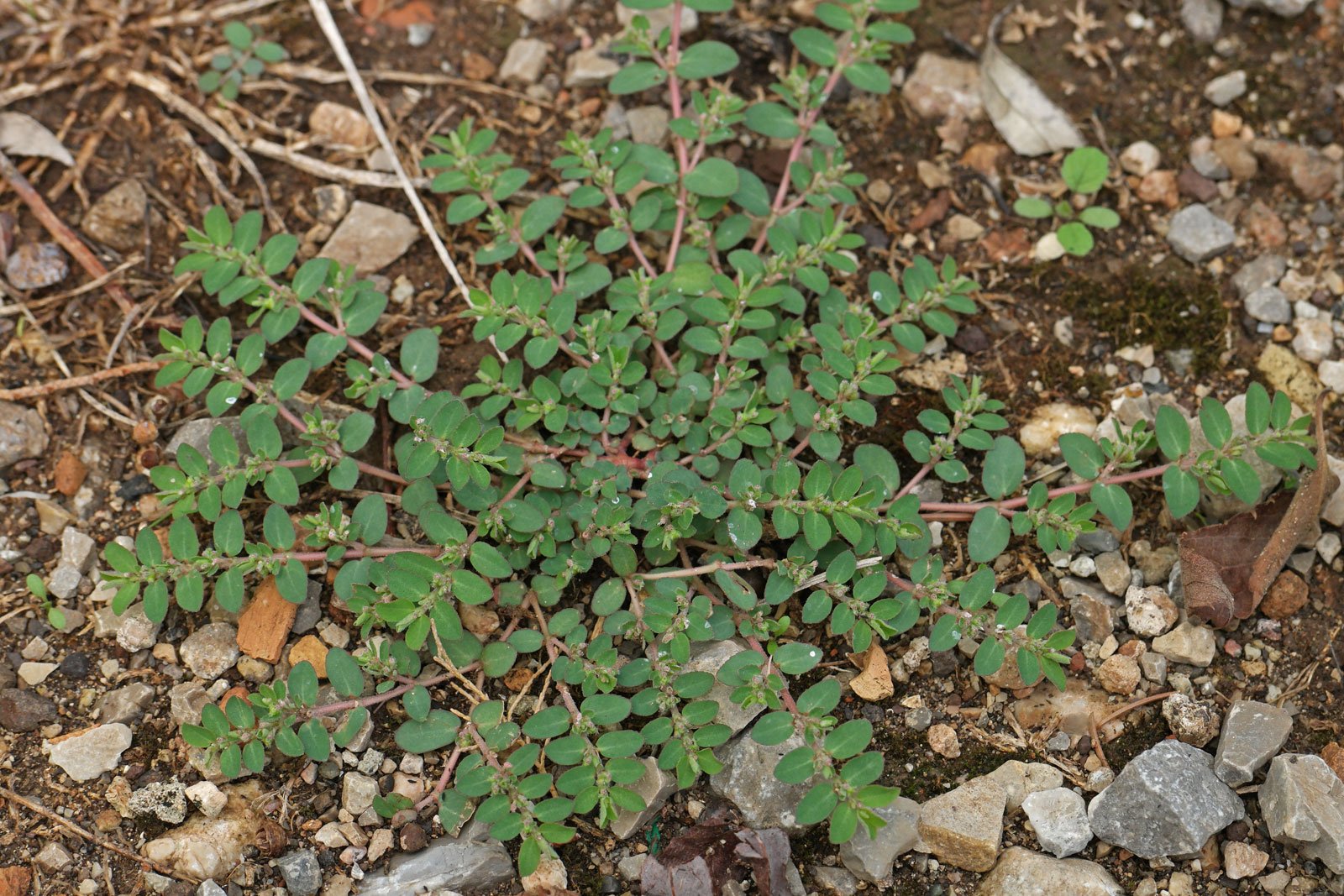🌿 Euphorbia prostrata
Scientific Name: Euphorbia prostrata
Common Names: Prostrate Spurge, Spreading Sandmat
Family: Euphorbiaceae (Spurge family)

🌱 Botanical Description:
- Growth habit: Euphorbia prostrata is a small, low-growing herb that spreads horizontally along the ground (prostrate).
- Leaves: Oval-shaped, opposite leaves with a reddish or purplish tinge.
- Stems: Thin, hairy, and reddish, often forming a mat-like structure.
- Flowers: Tiny, not showy, appearing in leaf axils.
- Latex: Like many Euphorbia species, it exudes a milky white sap when broken.
🌍 Native Region:
- Originally native to tropical and subtropical regions, especially in India, but now found worldwide, including Africa, Southeast Asia, and the Americas.
🧪 Traditional Uses:
Euphorbia prostrata has been used in traditional medicine systems, particularly Ayurveda and folk medicine, for the treatment of:
- Hemorrhoids (piles)
- Wounds and skin infections
- Gastrointestinal issues
- Inflammatory conditions
It is most famous for its anti-inflammatory and wound-healing properties.
✅ Anti-inflammatory effects:
- Chronic inflammation is linked to neurodegenerative diseases like Alzheimer’s and Parkinson’s.
- Euphorbia prostrata contains flavonoids and polyphenols that may reduce inflammation, potentially offering neuroprotective effects.
✅ Antioxidant activity:
- Its antioxidant compounds may help neutralize free radicals, reducing oxidative stress in the body and brain—important for protecting neurons and maintaining cognitive function.
- Its effects on the brain may be supportive or secondary, via reducing inflammation or oxidative stress.
⚠️ Caution & Side Effects:
- The plant’s milky latex can be irritating to the skin and eyes.
- Not recommended during pregnancy or breastfeeding.
- Self-medication is not advised without guidance from a qualified healthcare professional.
- Internal use should be done carefully, preferably in standardized extract form.
🧴 Forms of Use :
- Dried powder
- Herbal paste (for external wounds)
- Extract capsules or tablets (commonly used in piles treatment)
🔬 Potential for Research:
- Euphorbia prostrata is being studied for its anti-cancer, anti-inflammatory, and anti-microbial properties.
- Further research may uncover more direct links to neurological or brain health, especially regarding inflammation-linked brain diseases.
| Effect | Evidence | Description |
|---|---|---|
| Anti-inflammatory | ✅ | May reduce systemic inflammation, which is linked to various brain disorders. |
| Antioxidant | ✅ | Helps protect cells—including brain cells—by neutralizing harmful free radicals. |
| Indirect Neuroprotection | ✅ | Could support brain health by reducing oxidative stress and inflammation. |